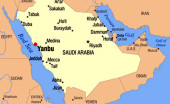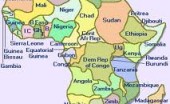This is such sad news, Diana. He was a presence of calm and reason in our discussions which were sometimes…
Middle East & Arab World June 2024-
Written by Diana Thebaud Nicholson // February 19, 2025 // Middle East & Arab World, U.S. // No comments
Middle East & Arab World March 2023-June 2024
Arab Barometer
19 February
Alarmed by Trump’s Gaza Plan, Arab Leaders Brainstorm on Their Own
Since President Trump suggested depopulating Gaza, Arab officials have suggested other ideas for reconstruction. But the emerging consensus repackages old plans as new ones.
(NYT) Representatives of Egypt, Jordan, Saudi Arabia, Qatar and the United Arab Emirates are quietly coordinating to form an alternative vision for Gaza in which Arab countries would help fund and oversee the reconstruction of Gaza, while keeping its residents in place and preserving the possibility of a Palestinian state, according to diplomats and officials briefed on the endeavor.
Envoys from all five countries are set to flesh out the details on Friday in Saudi Arabia, and then again at a bigger summit on March 4 in Cairo. At those meetings, Egypt will likely propose forming a committee of Palestinian technocrats and community leaders, all unaffiliated with Hamas, who could run Gaza after the war, according to two Arab diplomats, a senior Western official and Senator Chris Van Hollen, Democrat of Maryland. Mr. Van Hollen said he spoke over the last week with the Egyptian, Saudi and Jordanian foreign ministers about the evolving proposal.
9 February
Egypt announces emergency Arab summit after Trump’s Gaza plan infuriates key allies
(AP) — Egypt announced Sunday that it will host an emergency Arab summit on Feb. 27 to discuss “new and dangerous developments” after U.S. President Donald Trump proposed to resettle Palestinians from the Gaza Strip.
Trump’s suggestion, made at a White House meeting with Israeli Prime Minister Benjamin Netanyahu last week, infuriated the Arab world, including Egypt, Jordan and Saudi Arabia — key allies of Washington.
Both Egyptian President Abdel Fattah el-Sissi and Jordanian King Abdullah II dismissed Trump’s call to resettle 1.8 million Palestinians in Gaza and for the U.S. to take ownership of the enclave, but Trump claims that they would eventually accept it.
A statement from Egypt’s Foreign Ministry said it would host the Arab League summit in Cairo following talks at the highest level in Arab countries in recent days, “including the state of Palestine that asked to hold the summit in order to discuss new and dangerous developments for the Palestinian cause.”
2024
31 July-1 August
Iran and its allies mourn militant leaders, vow revenge against Israel
Mourners in Iran and Lebanon commemorated slain Hamas and Hezbollah officials as they signaled that the outburst of violence in the region may be far from over.
High-Profile Assassinations Push Iran and Israel to the Brink of War
A tense showdown risks spiraling out of control.
(Foreign Policy) Conflict in the Middle East has escalated once again after twin high-profile strikes of Israeli arch-enemies.
(Financial Times) Hamas’s political leader Ismail Haniyeh was killed in a strike in Tehran yesterday; Iran blames Israel and has vowed to avenge his death. The news came just hours after Israel said it killed a senior Hizbollah commander in Beirut. That strike, says Israel, was revenge for a deadly attack on the Israeli-occupied Golan Heights. The cycle of escalation is looking even more dangerous than usual.
Israel and Iran have been to the brink before now, but so far have just about pulled back every time. As our Middle East editor Andrew England writes, the risk of all-out war is now rising sharply.
The Aftermath of the Haniyeh Killing: How to Avoid a New Middle East War
(Just Security) For months, Israel has been “on the brink” of war with Lebanese Hezbollah and Iran. That threshold may now have been crossed. On July 30, the Israel Defense Forces (IDF) acknowledged killing Lebanese Hezbollah official Fuad Shukr in Beirut, the commander they claim is responsible for the rocket attack over the weekend that killed a dozen children in the Israeli-controlled Golan Heights. Twelve hours later, Hamas’s political leader Ismail Haniyeh was killed in an airstrike at his residence in northern Tehran after attending the inauguration of Iranian President Masoud Pezeshkian.
The attacks have elevated tensions at a time when the region is teetering on the edge of all-out war. But escalation is not inevitable. Through strategic diplomacy and the clear communication of red lines, there is a rapidly closing window of opportunity to pull all sides back from the precipice.
20 July
Israel strikes Yemen after Houthis claimed drone attack in Tel Aviv
Israel’s attack Saturday heralded a further expansion of the war in Gaza, and added a volatile new dynamic to what has become a building regional conflict.
Israel said Saturday that it had carried out airstrikes on a port city in Yemen controlled by the Houthi militant group, in an attack that sparked massive fires and caused deaths and injuries, the Israel Defense Forces and the Houthi-run Masirah news channel said.
Israel attacks Yemen’s port city of Hodeidah
(Al Jazeera) Houthi-run media say Israeli air strikes have targeted oil storage facilities in the Yemeni port city of Hodeidah and that there are an unspecified number of fatalities and injuries.
The Israeli military says it struck “military targets” of Houthis in response to attacks on Israel.
19 July
Gaza conflict could fuel IS and al-Qaida revival, security experts warn
Officials and analysts warn of evidence of increased Islamic State and al-Qaida militant activity across Middle East
Security services across the Middle East fear the conflict in Gaza will allow Islamic State (IS) and al-Qaida to rebuild across the region, leading to a wave of terrorist plots in coming months and years.
Officials and analysts say there is already evidence of increased Islamic militant extremism in many places, although multiple factors are combining to cause the surge.
In recent months, an IS branch in the Sinai desert has become more lethal, rising attacks by the group in Syria have caused concern, and plots in Jordan have been thwarted.
19 June
The Bigger Game: Israel and Saudi Arabia vs. Iran
By Gwynne Dyer
US interests and Biden’s own political future both now require that this war stops and that Netanyahu relinquishes power. Biden certainly has the means to make these things happen, and if he does not come to the right decision himself, those around him will probably impose it on him.
I’d bet on a permanent ceasefire and a hostage release within a month, six weeks tops.
>Gaza, IDF, Hamas, Netanyahu, famine, terrorism, genocide, and on and on: the loud, incessant clatter of local issues and tactical moves almost drowns out the low, grinding noise as the Middle East shifts inexorably into a new strategic alignment. But it’s happening, and it’s still about oil, sort of.
Israel has no oil, and the Palestinians have nothing worth stealing except their land. Iran and Saudi Arabia are much bigger, but they would be no more important in strategic and economic terms than Thailand and South Africa if they weren’t jointly sitting on 29% of the world’s oil reserves.
Most of America’s great-power allies and/or rivals – China, India, Japan and the bigger members of the European Union – still depend heavily on oil imported from the Gulf. Military control of access to the Gulf therefore remains a high priority in American strategy: Washington can keep the Strait of Hormuz open for its friends and close it to its enemies.
America’s major ally in the Gulf for fifty years now has been Saudi Arabia. The alliance is founded on the fact that both countries see Iran, just across the Gulf, as a dangerous enemy. The US provides the military power and Riyadh gives Washington a voracious market for US-made weapons and steady support for the US dollar.
There was only one persistent irritant in this long and cozy relationship: US support for Israel. It has never been a show-stopper, but Washington would obviously prefer to reconcile its two major Middle Eastern allies. Recently, it thought it had spotted a chance.
11 June
America Is Losing the Arab World
And China Is Reaping the Benefits
By Michael Robbins, Amaney A. Jamal, and Mark Tessler
(Foreign Affairs) Hamas’s [7 October] assault and Israel’s subsequent devastating military operation in Gaza have curtailed [the] march toward normalization. Saudi Arabia has stated that it will not proceed with a normalization deal until Israel takes clear steps to facilitate the establishment of a Palestinian state. Jordan recalled its ambassador to Israel in November 2023, and a visit to Morocco by Israeli Prime Minister Benjamin Netanyahu planned for late 2023 never materialized. Arab leaders have watched warily as their citizens have grown vocally opposed to the war in Gaza. In many Arab countries, thousands have turned out to protest Israel’s war and the humanitarian crisis it has produced. Protesters in Jordan and Morocco have also called for an end to their countries’ respective peace treaties with Israel, voicing frustration that their governments are not listening to the people.
October 7 may turn out to be a watershed moment for the United States, too. Because of the war in Gaza, Arab public opinion has turned sharply against Israel’s staunchest ally, the United States—a development that could confound U.S. efforts not only to help resolve the crisis in Gaza but also to contain Iran and push back against China’s growing influence in the Middle East. Since 2006, Arab Barometer, the nonpartisan research organization we run, has conducted biannual nationally representative opinion surveys in 16 Arab countries, capturing ordinary citizens’ views in a region that has little opinion polling. After the United States’ 2003 invasion of Iraq, other polls consistently found that few ordinary Arab citizens held positive views of the United States. By 2022, however, their attitudes had improved somewhat, with at least a third of respondents in nearly all countries Arab Barometer surveyed affirming that they held “a very favorable” or “somewhat favorable” opinion of the United States.
17 May
A Conversation with Dr. Michael Robbins on Public Opinion in the Arab World
Arab Barometer Director Dr. Michael Robbins discusses various aspects of Arab public opinion on the war in Gaza, noting the significant shifts in sentiment following the events of October 7. He discusses the favorability towards the United States across the region, contrasting this with increased support for China’s image. Dr. Robbins also examines how Russia is perceived in the region, providing insights into the complexities of its reputation. Furthermore, he addresses the enduring support for a two-state solution, highlighting the nuanced perspectives and aspirations of the Arab public regarding this long-standing issue.



